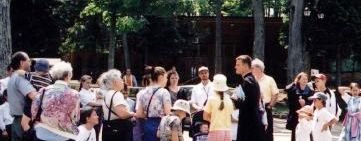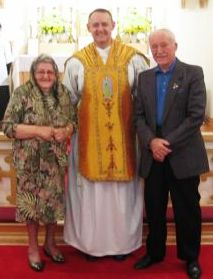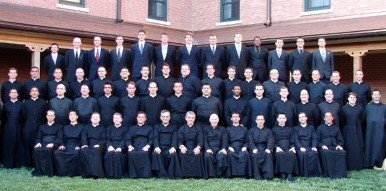Uncomfortably close
For, as close as the loincloth clings to a man’s loins,
so had I made the whole house of Israel
and the whole house of Judah cling to me, says the LORD.
Wow! That is uncomfortably close!
(For some of us, this imagery provokes particular discomfort because of our own dirty or prudish minds. That, of course, is our problem, not a problem in the text or the truth being taught.)
But the most uncomfortable closeness is not physical closeness, but emotional and cognitive closeness in a relationship. This is a serious problem for many and is the bane of many relationships.
It is also a common problem in our personal relationship with God.
Emotional closeness involves emotional vulnerability: closeness so great that anything in the relationship or in the other affects us deeply and powerfully – sometimes exaltation and sometimes devastation. And so we often build up an emotional buffer zone that puts distance between the other and ourselves.
We do this in our human relationships and we do it in our relationship with God.
Sometimes this happens the first time we are disappointed in our prayer: we opened our heart to the Lord and asked for something, it did not happen and we do not open up our hearts to the Lord quite as much again.
Cognitive closeness involves complete, thorough and intimate knowledge of ourselves by the other: that person knows our quirks, our habits, our tricks, our evasions, our canned expressions, our vulnerabilities, our hot buttons, our weaknesses, etc. Sometimes this frightens us and so we try to protect our sense of self with impulsive actions, playacting and creative stratagems, hiding and distancing ourselves from the other.
We know objectively, of course, that while we can fool other people, we cannot fool God, so what we do is try to fool ourselves, most often through our rationalizations and sometimes even by denying God's existence.
But God sees through it all: he still remains close to us, loves us, and calls us to let ourselves be drawn ever closer to him.
May God give us the grace to be perfectly at peace and comfortable in his closeness.
O LORD, thou hast searched me and known me!
Thou knowest when I sit down and when I rise up;
thou discernest my thoughts from afar.
Thou searchest out my path and my lying down,
and art acquainted with all my ways.
Even before a word is on my tongue,
lo, O LORD, thou knowest it altogether.
Thou dost beset me behind and before,
and layest thy hand upon me.
Such knowledge is too wonderful for me;
it is high, I cannot attain it.
Whither shall I go from thy Spirit?
Or whither shall I flee from thy presence?
If I ascend to heaven, thou art there!
If I make my bed in Sheol, thou art there!
If I take the wings of the morning
and dwell in the uttermost parts of the sea,
even there thy hand shall lead me,
and thy right hand shall hold me.
If I say, "Let only darkness cover me,
and the light about me be night,"
even the darkness is not dark to thee,
the night is bright as the day;
for darkness is as light with thee.
For thou didst form my inward parts,
thou didst knit me together in my mother's womb.
I praise thee, for thou art fearful and wonderful.
Wonderful are thy works!
Thou knowest me right well;
my frame was not hidden from thee,
when I was being made in secret,
intricately wrought in the depths of the earth.
Thy eyes beheld my unformed substance;
in thy book were written, every one of them,
the days that were formed for me,
when as yet there was none of them.
How precious to me are thy thoughts, O God!
How vast is the sum of them!
If I would count them, they are more than the sand.
When I awake, I am still with thee.
Psalm 139:1-18
 A Penitent Blogger
A Penitent Blogger










